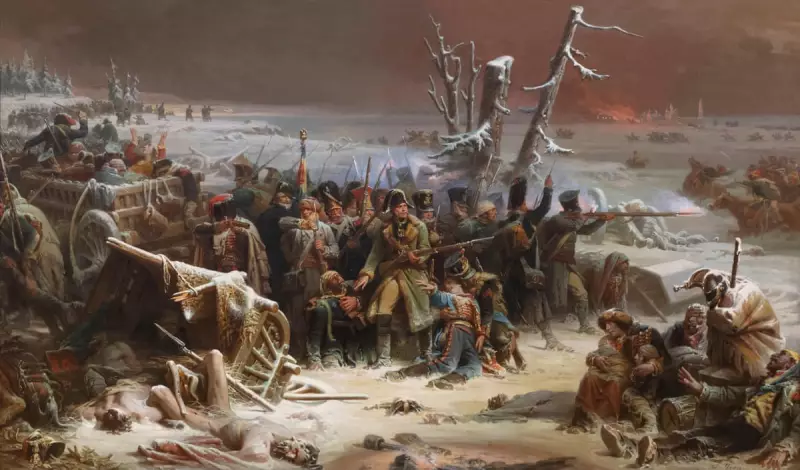
In a stunning revelation that rewrites military history, cutting-edge scientific analysis has finally uncovered the true causes behind the catastrophic collapse of Napoleon Bonaparte's legendary army during the disastrous 1812 Russian campaign.
The Grim Discovery
Researchers examining mass graves containing the remains of French soldiers have made a startling discovery that challenges centuries of historical understanding. Using advanced DNA analysis techniques, an international team of scientists has identified the specific pathogens responsible for one of history's most devastating military losses.
Not Just the Cold
While brutal winter conditions have long been blamed for the army's destruction, the new evidence reveals a far more complex and deadly scenario. Typhus and trench fever emerged as the primary killers, spreading rapidly through the exhausted troops and claiming lives long before the famous Russian winter took its toll.
The Science Behind the Findings
The research team employed sophisticated genetic sequencing on dental pulp extracted from soldiers' teeth discovered in a mass grave in Vilnius, Lithuania. This innovative approach allowed scientists to identify pathogens that circulated in the blood of these soldiers over 200 years ago.
"The conditions these soldiers endured were beyond comprehension," explained lead researcher Dr. Michel Signoli. "They faced not just enemy forces and freezing temperatures, but invisible biological enemies that proved far more deadly than any sword or bullet."
A Medical Catastrophe
The research paints a horrifying picture of the army's medical crisis:
- Typhus outbreaks spread by body lice in overcrowded, unsanitary conditions
- Trench fever adding to the suffering and mortality rates
- Complete lack of understanding about disease transmission
- Inadequate medical facilities overwhelmed by the scale of illness
Historical Implications
This groundbreaking research fundamentally changes our understanding of one of history's most famous military campaigns. The findings suggest that disease, rather than combat or climate alone, played the decisive role in Napoleon's defeat, with up to 80,000 soldiers potentially succumbing to illness before even reaching Moscow.
The study serves as a powerful reminder of how infectious diseases have shaped human history, often proving more decisive than military strategy or political ambition.





